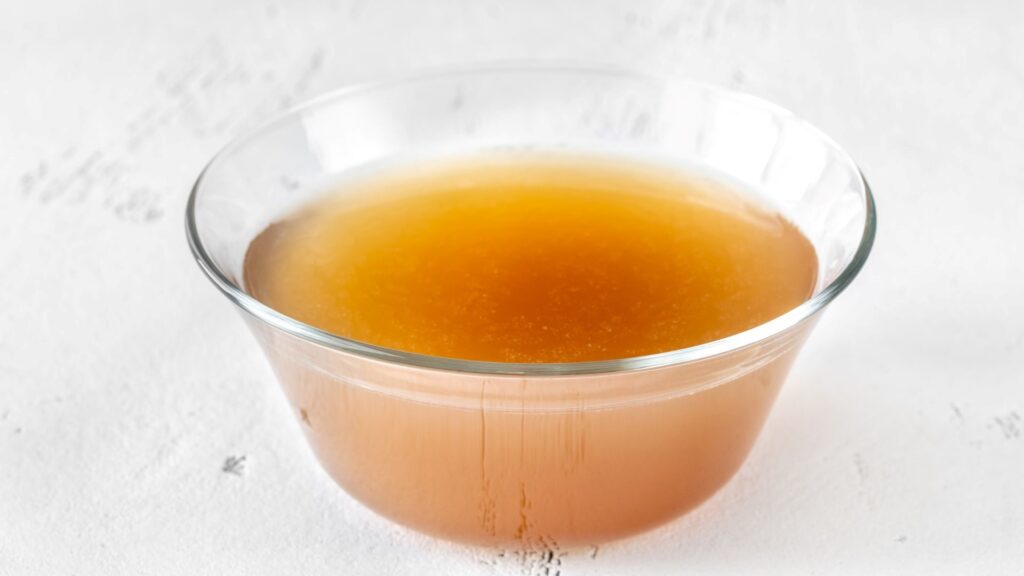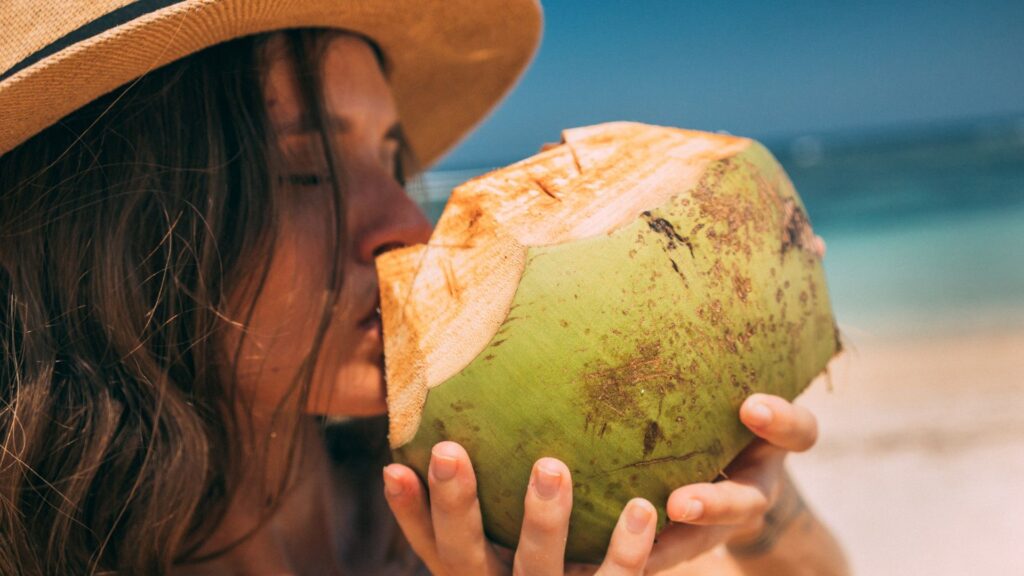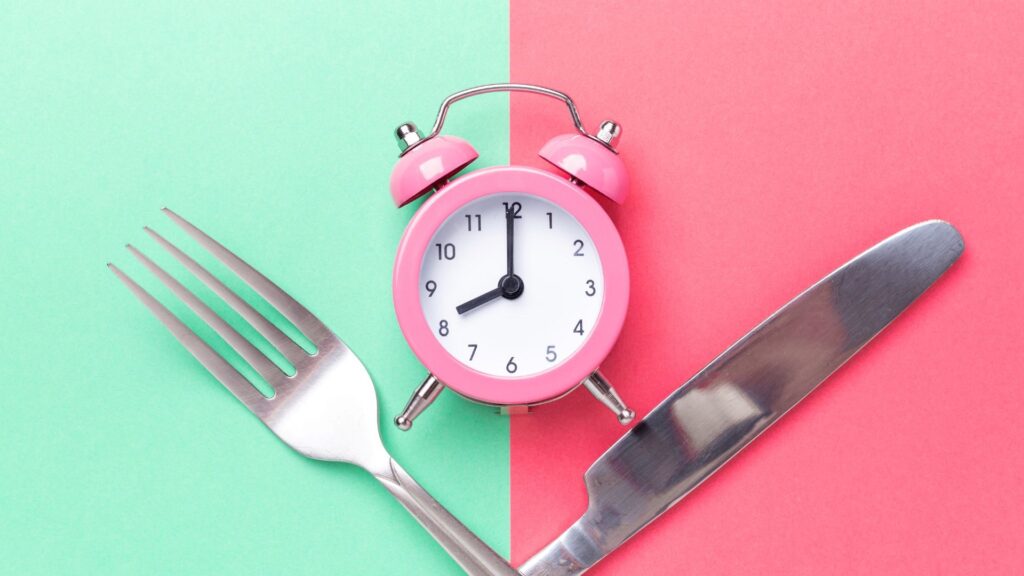It is crucial to know what to drink during intermittent fasting so that you can reach your health goals.
Intermittent fasting is a popular diet method that involves not eating for a certain amount of time each day, usually between 12 and 16 hours. Water, black coffee, and tea, which don’t contain many calories, are still acceptable.
Nonetheless, many individuals worry about what other beverages they can have when fasting sometimes. As part of an intermittent fast, drinking the best liquids is essential, and we’ll discuss some of the best options below.
What Is Intermittent Fasting?
Intermittent fasting involves alternating periods of eating and fasting to minimize calorie intake. It is a technique for accomplishing the following objectives: weight loss, improved metabolic health, and longer life. Intermittent fasting includes the 16:8 diet, the 5:2 diet, and alternate-day fasting. During the fasting period, it is critical to minimize calorie consumption in whichever method works best for you.
1. Water
Water is an essential component of our bodies, accounting for around 60% of our total weight. It is important to drink enough water in order to keep hydrated and maintain healthy body functions. Water is especially important during intermittent fasting because it keeps you hydrated and helps to reduce hunger and overeating during the meal window.
One of the primary advantages of drinking water during intermittent fasting is that it keeps you hydrated. Fasting reduces calorie intake, which can contribute to dehydration. Dehydration can lead to a variety of health problems, such as headaches, lethargy, and muscular cramps. You may keep hydrated and avoid these bad effects by drinking water during your fast.
Drinking water during intermittent fasting can also assist to lessen hunger and prevent overeating during the eating window. Hunger pains are common during fasting and might also lead to overeating during the eating window. Water consumption can assist to lessen hunger and the chance of overeating.
Water is also important for eliminating toxins from the body and promoting digestion. Fasting causes the body to enter an autophagic state, in which it breaks down and eliminates damaged cells and poisons. At this time, drinking water can help flush out these toxins and improve overall digestion.
To get these benefits, it is critical to drink enough water during the fasting period. Men should drink around 3.7 liters of water per day, while women should drink about 2.7 liters. These guidelines, however, may differ based on factors such as age, weight, and amount of physical activity.
2. Black Coffee

Many individuals break their fast with a cup of black coffee. Caffeine, which is present in this low-calorie beverage, has been shown to aid the body during fasting. When used with intermittent fasting, black coffee has been shown to enhance fat burning, clear the mind, and make you feel full.
Because of its inherent caffeine level, black coffee is a feasible beverage option for persons on an intermittent fast.
Caffeine, a naturally occurring stimulant, has been shown to enhance metabolic rate and aid in fat reduction. In reaction to stress, the body produces more adrenaline, which aids in the use of fat reserves. Thus it seems to be the reason that drinking black coffee while fasting will assist in weight reduction.
According to studies, consuming black coffee not only benefits weight reduction but also enhances cognitive and work performance. Caffeine, which is present in coffee, has been shown to stimulate the central nervous system. This will help you feel less weary and more awake. This talent may be especially valuable when fasting because it improves attention and productivity.
Another alternative for lowering hunger and cravings during a fast is black coffee. Caffeine concentration in coffee has been shown to lessen appetite and make it easier to avoid harmful snacking. This will help you stick to your fasting schedule and avoid overeating during your eating window.
If you’re fasting, drink your coffee black, with no sugar or creamer. Even a small increase in calorie intake will accelerate digestion and keep the body from fasting. Just drink black coffee, tea, and other calorie-free beverages when fasting.
3. Green Tea

Many people who practice intermittent fasting swear by green tea as a healthy beverage choice. This zero-calorie beverage is packed with healthful antioxidants and catechins, which can help you in many ways when you’re fasting. Green tea consumption while fasting has been shown to have beneficial effects on metabolism, fat burning, inflammation, protection from chronic illnesses, appetite suppression, and cognitive function.
Including green tea in your intermittent fasting routine is a great way to get the metabolic benefits of this eating strategy. Green tea’s catechins have been demonstrated to promote fat-burning and metabolic rate. This is a great drink to include in your fasting practice because it can aid in weight reduction and fat loss.
Antioxidants included in green tea may help the body deal with inflammation. Chronic disorders including heart disease, diabetes, and cancer can all have their origins in inflammation. Green tea, when consumed while fasting, has been shown to lower inflammation and protect against certain chronic illnesses.
Green tea’s health benefits extend beyond just its antioxidant characteristics, though. Caffeine in green tea has been shown to have an appetite-suppressing effect, making it simpler to maintain a fast. Green tea’s ability to sharpen one’s mind and promote concentration has been linked to a boost in efficiency.
A cup of green tea is a simple and quick way to break your fast. If you want to enjoy the health benefits of green tea, all you have to do is boil a cup and sip it unsweetened and unsweetened. This will help you adhere to the fasting rules while still enjoying the health advantages of green tea.
4. Bone Broth

The consumption of bone broth has increased in recent years due to its reputation as a nutritious beverage. Bones and connective tissue are simmered for many hours in water to produce this nutrient-rich beverage. The end product is a savory broth high in collagen, minerals, and amino acids, all of which have been shown to improve health during intermittent fasting.
Bone broth’s potential to promote intestinal health is one of the key reasons to consume it when intermittent fasting. Collagen, which is abundant in bone broth, can mend the digestive tract lining and make for better absorption of food. It also encourages the development of good bacteria in the digestive tract, which might lessen inflammation there.
Bone broth not only helps the digestive tract, but it also helps decrease inflammation all over the body. For people suffering from inflammatory disorders like arthritis or joint pain, drinking bone broth may be beneficial due to the anti-inflammatory effects of its amino acids.
Bone broth, when consumed during the fasting period, can help to curb appetite and make you feel fuller for longer. Bone broth is a nutrient-dense beverage that can help curb hunger and food cravings. It might help you feel full for longer, which can make it simpler to maintain your fasting schedule.
Bone broth is OK to drink during intermittent fasting, however, it must be consumed without any additional vegetables or seasonings. During fasting, bone broth is best consumed when it is homemade from high-quality bones and simmered for at least 12 hours. Bone broth can also be purchased ready-made from a reliable supplier; just make sure there are no unwanted veggies or spices included.
5. Apple Cider Vinegar
Many studies have shown that apple cider vinegar has several health advantages, making it a popular health food. Apple cider is fermented with yeast to produce acetic acid, which gives the beverage its characteristic sour flavor and low-calorie count. Apple cider vinegar has been shown to enhance digestion, decrease inflammation, and lower blood sugar levels, and is, therefore, an excellent choice to consume during a fast.
The capacity of apple cider vinegar to aid digestion is one of its primary advantages during intermittent fasting. Enzymes and probiotics in apple cider vinegar aid digestion and increase nutrient uptake. This is a great beverage to ingest during the fast since it can help alleviate bloating, gas, and other digestive concerns.
The anti-inflammatory effects of apple cider vinegar are well-documented. It has been shown that the acetic acid in apple cider vinegar can help to reduce inflammation in the body, making it a useful beverage for persons with inflammatory illnesses including arthritis and other joint issues.
Apple cider vinegar, if used while fasting, can also help curb appetite. Apple cider vinegar’s acetic acid can help suppress appetite, making it simpler to maintain a fasting regimen by lowering feelings of hunger. Those who struggle to resist sugar or food cravings during the day may find this beverage helpful.
Nevertheless, apple cider vinegar should be consumed moderately, since too much of it might cause stomach problems. A daily intake of more than one or two tablespoons of apple cider vinegar is not recommended.
6. Coconut Water

Electrolytes, vitamins, and minerals abound in coconut water, making it a popular beverage. The clear liquid contained within green coconuts is often utilized as a natural sports drink and has a low-calorie count. It is a great choice for hydration, inflammation reduction, and heart health support throughout the fasting period.
Coconut water is a good way to replace electrolytes and fluids lost while fasting, as it contains a lot of potassium, magnesium, and salt. This may reduce the likelihood of experiencing the headaches and exhaustion that come along with being dehydrated.
Moreover, research has shown that coconut water can reduce inflammation. It is a good beverage for persons with inflammatory illnesses like arthritis and other joint issues because of the cytokinins and antioxidants it contains.
Coconut water, when consumed during the fasting period, has been shown to have a similar effect on appetite and satiety as other foods high in fat and protein. It is a nutrient-dense beverage that can help curb appetite and hunger pangs. This natural water might help you feel full for longer, which can make it simpler to maintain your fasting schedule.
Coconut water is OK to drink during intermittent fasting as long as no other sugars or tastes are added. Choose pure, unsweetened coconut water that has not been artificially flavored or sweetened.
Conclusion
Intermittent fasting has gained popularity due to its proven effectiveness in promoting weight loss and improving metabolic health. During fasting, you should drastically cut back on your food consumption, but you shouldn’t deprive yourself of your favorite drinks. During an intermittent fast, you can drink black coffee, green tea, bone broth, apple cider vinegar, or coconut water. Some drinks are acceptable during a fast if they are prepared without sugar or cream. Consuming them while intermittent fasting may help you retain fluids and curb cravings.

